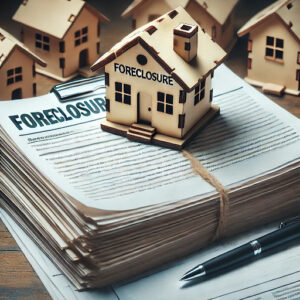Housing Market Overview
The current state of the housing market
The housing market in the United States is in crisis due to rising interest rates, and inflation issues, and the question of when will the housing market crash again is becoming more and more concerning. These elements point to the possibility of a slowdown in home price appreciation hence there is a future possibility of a housing market crash in the USA because of these factors. However, opinions vary; for example, some specialists feel like it’s just a matter of time before the bubble bursts while others claim it will not happen at all since the market is strong enough. This calls for constant monitoring since the various economic factors are interrelated.
Housing has seen many ups and downs over time with years passing like a flash. At first there was stagnation because of COVID-19 followed by a return period attributable to low mortgage rates in history and increased demand for houses as people became more confined (locked down) looking for bigger spaces where they could move around without restriction during the lockdown. It is this upsurge in demand together with supply chain disruptions that hindered any new construction thereby making house prices rise rapidly. However, things are different now as inflation looms over the economy and the Federal Reserve raises interest rates to fight inflation, something that has thrown a shadow over the destiny of the US housing market.
The market has continued to soldier on despite these challenges. Limited housing stock owing to an under-building period spanning ten years and homeowners holding on has continued to give support for higher priced homes. Moreover, the market has remained buoyant due to strong buyer demand, particularly from millennials who are now entering their prime home-buying years. As a result, we have an environment where home prices tend to be high even when affordability remains a difficult problem for many prospective buyers.
Housing market dynamics and fluctuations
High mortgage rates have been defined by rising prices on homes in the last few years. It was noted that compared with the same time period, the median value of existing homes within the United States went up a whole 5.7 % as per statistics from the National Association of Realtors (NAR). Therefore the housing bubble will not burst soon because these homes continue appreciating despite the bad conditions facing them.
Real estate markets are known to be cyclical in nature and are influenced by a wide range of factors including economic conditions, interest rates, and levels of consumer confidence among others. Over the 200s, prices have been moving upwards for quite some time now. This phenomenon has been a result of changes in credit availability, adjustments in lending standards, as well age group changes such as millennials who are peaking into their first home-buying years. Even though there have been fluctuations, generally prices have kept increasing unlike how it used to happen in the past where they would vary depending on the region or segment of the market.
Variation in the region is a significant determinant of market fluctuation. In contrast to other regions where growth has been moderate, some major metropolises have experienced steep rises in real estate prices. Accordingly, this can be attributed to differences in local economic forces, job markets, and housing sectors as well as housing availability present there. A case in point is that cities with expanding tech industries witnessed soaring home rates because they demanded higher remunerated professionals; this was different from those in cities, which depended on industries that experienced falling revenues during periods of bad economic times.
Expert Insights on a Potential Crash

Will the housing market crash in 2024?
Most economists do not predict a housing market crash in 2024 or even in the near future. Predictions by major industry groups suggest that home prices will increase by between 2% and 4.8% this year. According to them, there is strong demand which can sustain this market because supply is limited. The consensus among these experts points out that despite high rates, it is improbable to face a crash.
Similarly, the possibility of a crash or bubble housing is often tied to macroeconomic circumstances and policy reactions. It is imperative to note that during the financial crisis of 2008, the housing market experienced a crash caused by risky lending practices combined with an excess supply of houses. These days, lending standards have tightened while there exists no surplus in houses available for everyone looking forward to owning one. While high rates might dampen some demand levels; at the same time they make it difficult for people engaged in speculative buying which may lead to stability in the long run.
As a matter of fact, if the market is going to crash again, many people owning homes as at now have invested too much money hence they can easily get loans secured using these homes within this decade, unlike earlier cases where houses fell down together with their prices. Consequently, inhabitants end up maintaining their current financial standings without losing their homes thus further promoting market stability.
Expert predictions and opinions on the market’s future
Experts also point to the structural issues in the housing market that support price stability. The shortage of housing inventory, particularly affordable housing, means that even if demand decreases slightly due to higher mortgage rates, the overall market is unlikely to see a significant downturn. Additionally, housing economists point out many homeowners have fixed-rate mortgages locked in at historically low rates, which reduces the likelihood of widespread foreclosures that could flood the market with supply.
On top of these structural issues, there is also faith in broader economic fundamentals supporting housing. There are many jobs that have been created recently than before while wage growth has maintained at healthy levels across different sectors.
Factors Influencing the Housing Market

Housing supply and demand imbalance

The major reason for the increase in house prices is that the demand is higher than the supply. Housing is significantly short with inventories remaining tight at 3.5 months supplies. According to this report, there will be insufficient supply which will always keep prices up as demand will always exceed supply. The persistent supply problem shows the difficulty that the market has in attaining a balance.
The construction industry faces several obstacles such as a shortage of laborers, high material costs, and regulatory difficulties leading to a slow pace of new home development. Additionally, many existing homeowners do not wish to sell their homes either because they are tied to low mortgage rates or because they don’t want to risk getting another one after disposing of this one. When there are few homes for sale, there will be high competition between buyers, and prices will go up.
However, these measures may take time before fully addressing the short-term constraints in supply.
Impact of mortgage rates on the market
The average rates have doubled consequently hitting the main housing market statistics severely. In some way these raised mortgage interest rates have stabilized the prices even with the high value of houses. Thus, currently, the raised rates on interest will be present in the near future leading to a lack of affordability hence making fewer buyers active.
High mortgage rates in the long run reduce the purchasing power of the buyers because they are able to buy less expensive homes due to increased interest payments. The low demand would particularly affect first-time homebuyers who are more sensitive to changes in affordability. Nevertheless, in certain market segments, the presence of high prices results in low competition providing an opportunity for those who are able to buy.
High mortgage rates affect not only individuals but the market on an overall scale by slowing down sales tempo and reducing the total number of transactions taking place. The slowdown in transactions can mean that the market becomes more balanced where buyers have increased negotiating power and prices do not rise as fast and as steeply as they used to. However, it can also be challenging for sellers, especially for those who need to dispose of their properties very fast or looking to upgrade to better residential areas.
Warning Signs of a Housing Market Crash

Low demand and its effects on the market

A sudden decrease in home purchase demand could trigger a housing collapse. High mortgage rates often cause reduced housing demands because potential buyers are cut off the market. If the demand drops drastically or there is too much housing supply, there would be massive downward pressures which may lead to a market crash.
The decrease in demand can also be triggered by economic factors like rising unemployment rates or falling consumer confidence levels. When potential buyers feel insecure about their future financial positions they often delay buying homes which in turn leads to the accumulation of unsold properties. As a result, it can result in lower prices particularly when sellers become desperate to dispose of their assets.
Increase in supply and its consequences

Building of excessive properties or widespread foreclosures during economic recessions can cause a surplus number of houses. In cases where there’s too much supply, this may cause houses to fall down and make a market crash possible especially if suppliers are not meeting potential buyers’ needs exactly during the construction period hence creating an oversupply situation. Therefore maintenance of equilibrium between demand and supply is important for ensuring stability in the market
Historically, housing bubbles have emerged and busted out when an oversupply of properties outpaced demand. This was demonstrated during the financial crisis of 2008 when there was a flooding of foreclosed homes into the market. This is to say that though currently, constraints on supply limits are dominant, any significant deterioration of economic conditions leading to high foreclosure rates could easily see us get into the danger zone where there is excess supply and housing bubbles await burst considerations.
Preparing for a Potential Crash

How to navigate a challenging housing market
In spite of the difficulties posed by the market, potential homeowners have to put in place proactive measures. Currently, one can navigate the market by expanding the search area, waiting for mortgage rates to come down, and asking for help from professional agents. The process becomes less intimidating when one is open-minded and achieves knowledge.
Likewise, researching different financing alternatives including likely fixed rates that may shoot up should be another consideration.
Besides, a buyer should consider engaging the services of a local realtor among these new strategies. Such a professional will not only be conversant with what is happening around him/her but will also counsel a prospecting buyer on the chances found in front of him/her and negotiate on behalf of the buyer for terms that are favorable to him/her They should consider forming a strong team that includes professionals like mortgage brokers or even real estate attorneys for a smooth buying process.
Getting help and guidance from experts

Various mortgage lenders are providing incentives to attract potential borrowers. This is why taking part in these offers and seeking assistance from real estate professionals would be beneficial to people who wish to take out loans.
Local market dynamics can be analyzed for potential realtors and loan officers to identify houses that meet their clients’ interests. Similarly, their knowledge will be required when negotiating such issues as loans and prices for houses. Their presence is a game changer in achieving a purchase.
Understanding the Consequences of a Crash

Impact of a housing market crash on homebuyers and the market
A housing market crash could make home buying easier, but it depends on the factors leading to the housing market going to crash again. If the crash results from an oversupply, prices might drop, benefiting buyers. However, if it stems from broader economic issues, the overall market stability could be affected, making it challenging for buyers to secure financing or find suitable homes.
FAQs and common concerns about a housing market crash
Will there be any crash in the housing market this year or next? Industry players do not foresee a major crash in the near future under these conditions including the structural factors we have.
Should I buy a house in 2024? While some may not find it perfect due to their pricing and elevated mortgage rates, it varies with individual factors as well as local situations.
What are the determinants of my purchasing power? It depends on aspects such as credit scores, monthly incomes, and debt-to-income ratios. Assessing your financial status and obtaining pre-approval for a home loan can help you understand how much you can borrow.
What if I fear a crash? Working with professionals who know what they are doing remains vital while staying learned throughout Diversification and saving up enough will make you weather such losses.
How do I preserve my house equity? It can only be done by avoiding risks associated with finances, maintaining properties in better conditions, and not late payments of loans. Capable of fixing interest rates are suitable during times when a volatile market exists.
Conclusion and Key Takeaways

Summary of expert insights and predictions
Experts generally don’t expect a crash in the housing market in 2024 or later. Low increases in house prices between 2% and 4.8% expected this year indicate that we currently enjoy a stable and healthy housing market driven by strong demand amidst limited supply. There is every indication the situation could lead to a correction rather than a collapse.
The market’s ability to withstand economic difficulties speaks volumes about its fundamental strength. However, high mortgage rates and inflation are potential risks: they may in turn reduce consumer spending and lower overall economic growth. This underscores the necessity of a well-structured and balanced housing market for the overall well-being of the economy.
Although there is a limited supply, and strong demand as well as responsible lending norms, the real estate market is well positioned. Despite uncertainty in monetary policy as well as inflation, however, there appears to be optimism tinged with caution about the economy. Being aware of changes in suggestions and attributing trends helps in predicting future movements of real property.
Final thoughts on the housing market’s future

An upswing in the real estate industry is on the horizon, even as there are dangers ahead. Conversely, severe inflation together with economic uncertainties may present some impediments towards a drastic fall in housing prices. Take heed henceforth so that you do not end up in such situations.
Homebuyers must remain cautious but hopeful by using any available resources including professional advice.
Buyers capable of analyzing these factors can use them to make decisions about their long-term goals without making losses in the future if there are changes that might appear likely for instance changes from today’s costs to tomorrow’s earnings among other things then don’t hesitate because we know what we want our life or at least what we’re heading towards even though we’re not sure about everything The future is uncertain about the housing market but people through deliberate planning can navigate through it successfully.
Similarly, sellers have to stay current with market conditions and utilize the services of real estate professionals to maximize personal investments in real estate. On pricing homes right, performing necessary repairs, and staging properties well potential buyers are attracted even when markets become challenging. Success will require flexibility and adaptability.
Furthermore, investors need to comprehend the broader economic context as they make their decisions. Diversifying one’s real estate investments across various markets as well as types of properties helps mitigate risks.
In general though, steady but not fast growth characterizes the housing sector. This paper seeks to explore how past housing cycles can help society stay strong amidst market fluctuations. Hence in order to succeed in the real estate market we need to be observant and take the initiatives required so as to meet our aims.





























